Demolition Work Begins For Massive Affordable Housing Development
Bear Development is clearing former factory complex to create 576 apartments.
A 10-acre site on Milwaukee’s south side is nearly ready for the construction of the largest private affordable housing development in Wisconsin.
Bear Development is working to clear the property to create space for eight new apartment buildings holding 576 total units. Actual construction work on the buildings is to begin later this year, with the first building to open in 2025.
The company, through a contractor, is working to raze the former Filer & Stowell factory complex, 147 E. Becher St. It will replace the former factory with a series of five-story buildings and a central green space. The resulting apartments will be leased at below-market rates through the low-income housing tax credit program.
The proposal, strongly backed by area Alderwoman Marina Dimitrijevic, will supply new workforce housing and housing for seniors looking to age in place in Bay View.
A mix of one and two-bedroom units would be set aside for households making no more than 40%, 50%, 60%, 70% and 80% of the regional median income. The majority (418) of the units would be set aside at the 60% threshold or below. A one-bedroom unit for an individual making $28,000 or less (40%) would cost $644 per month. A one-bedroom unit for an individual making no more than $64,000 (80%) would cost $1,394. Additionally, 144 of the apartments would be set aside for seniors (individuals 55 or older) with qualifying incomes. Individuals with incomes between $28,000 and $56,000 would qualify for a unit whose rent is structured to meet 30% of their income. The income limits expand for larger households.
The development costs for the project are expected to be $205 million. In addition to federal and state tax credits, Bear is leveraging a $9.2 million subsidy from the City of Milwaukee through a developer-financed tax incremental financing (TIF) district. The structure works effectively as a property tax rebate, with increased property tax revenue generated by the development being returned to the developer over a period of no more than 15 years. The city has increasingly used the structure to close financing gaps in affordable housing developments. The Common Council approved the agreement last fall.
Bear is also leveraging a $835,000 grant, awarded in December 2022, from the city’s Housing Trust Fund. The Redevelopment Authority of the City of Milwaukee is providing a $1 million loan from its Brownfield Cleanup Revolving Loan Fund.
The site runs from E. Lincoln Avenue to E. Becher Street, but is largely hidden because it sits between the heavily-traveled Canadian Pacific Kansas City railroad tracks to the east and a vacated Union Pacific rail corridor to the west. The long, narrow site sits on the border of Bay View and the Harbor District. An extension of the Kinnickinnic River Trail would bisect the buildings, partially filling a gap between the north and south trail segments.
The buildings are being razed by Kenosha-based Recyclean. Instead of demolishing the structures, the company is pursuing a strategy of deconstruction. The environmentally-friendly practice is focused on salvaging as many materials for reuse or recycling as possible. For the past several weeks, piles of sorted materials have been visible at the site. Earlier this month, a pallet of sorted and stacked Cream City bricks, of which new ones haven’t been pressed in a century, sat awaiting a future use. The most notable building, a four-story structure facing E. Becher Street., will yield many more as it’s disassembled.
Filer & Stowell was a manufacturing company best known for making sawmill equipment. Long-time property owner Brian Read, whose grandfather acquired and ran Filer & Stowell many decades ago, operated Southwind Marine at the site. Until 2017, his use of the property also included Integrated Tool & Machine. During a 2020 tour, Read said that Integrated made parts for Siemens and replacement parts for Filer & Stowell equipment from a machine shop that was the largest building, a 1,200-foot-long structure on the western edge of the property, in the complex. None of the buildings were locally historically protected.
Bear purchased the site for $10 million in January, according to state real estate transfer records, though it had taken effective control of the property much earlier. Pre-demolition work visibly began in the second half of 2023, with the structures progressively disappearing in recent weeks.
Kenosha-based Bear has publicly eyed the project since 2020, but has seen its development plans switch from redeveloping the former factory buildings to clearing and leveling the site to maximize the space that can be developed. Company CEO S.R. Mills previously cited rising costs and the poor condition of the properties as a reason for the switch.
Mills said the company is prepared to handle the environmental remediation needs. “We have a litany of information,” he told a city committee in September when he described a consultant’s report. Mills said Bear is also employing a strategy designed to minimize the risk: not having any first-floor residents. The reuse of industrial properties became a hot-button topic last year when a bureaucratic loophole involving city and state officials, and the failure of a developer to appropriately test a ventilation system, required the city health department to issue an emergency evacuation order for an affordable housing development on the city’s north side. A similar issue then happened in Glendale. The Milwaukee Common Council has since approved new city policies designed to close the approval sequencing loophole that allowed the failure.
Kahler Slater is leading the buildings’ design, which were refined after a May 2023 community meeting.
The project is far from the only thing Bear has underway in Milwaukee or Wisconsin. Most notably, the company is master developer of the Iron District on the southwest corner of Downtown. The first building, the 99-unit Michigan Street Commons affordable apartment building, is nearing completion. Recyclean is wrapping up its work deconstruction the former Ramada Hotel on the east end of the downtown site.
Photos
October 2020 Tour Photos
Renderings and Site Plan
If you think stories like this are important, become a member of Urban Milwaukee and help support real, independent journalism. Plus you get some cool added benefits.
More about the Filer & Stowell redevelopment
- Friday Photos: The Corliss Transforms Bay View, Harbor District Border - Jeramey Jannene - Apr 11th, 2025
- Friday Photos: Demolition Work Begins For Massive Affordable Housing Development - Jeramey Jannene - Feb 16th, 2024
- Eyes on Milwaukee: 576-Unit Bay View Apartment Complex Wins Key Approval - Jeramey Jannene - Sep 12th, 2023
- Eyes on Milwaukee: Construction Could Start in 60 Days On Massive Bay View Project - Jeramey Jannene - Aug 17th, 2023
- Eyes on Milwaukee: Massive Bay View Development Plan Has Grown - Jeramey Jannene - May 24th, 2023
- Eyes on Milwaukee: Deal On Affordable Housing Adds Bay View, Edison School Projects - Jeramey Jannene - Dec 13th, 2022
- Eyes on Milwaukee: 7 Milwaukee Affordable Housing Projects Win Funding - Jeramey Jannene - Nov 4th, 2021
- Eyes on Milwaukee: Harbor District Project Moving Forward - Jeramey Jannene - Oct 25th, 2021
- Transportation: Becher Street Receiving Road Diet, Raised Bike Lane - Jeramey Jannene - Jul 31st, 2021
- Eyes on Milwaukee: 10 City Affordable Housing Projects Win State Financing - Jeramey Jannene - Apr 27th, 2021
Read more about Filer & Stowell redevelopment here
Political Contributions Tracker
Displaying political contributions between people mentioned in this story. Learn more.
Friday Photos
-
The Corliss Transforms Bay View, Harbor District Border
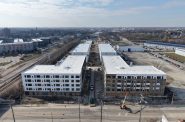 Apr 11th, 2025 by Jeramey Jannene
Apr 11th, 2025 by Jeramey Jannene
-
New Bronzeville Hub Rising
 Apr 4th, 2025 by Jeramey Jannene
Apr 4th, 2025 by Jeramey Jannene
-
New Buildings Reshape North End of Water Street
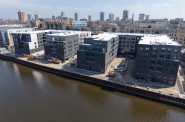 Mar 28th, 2025 by Jeramey Jannene
Mar 28th, 2025 by Jeramey Jannene


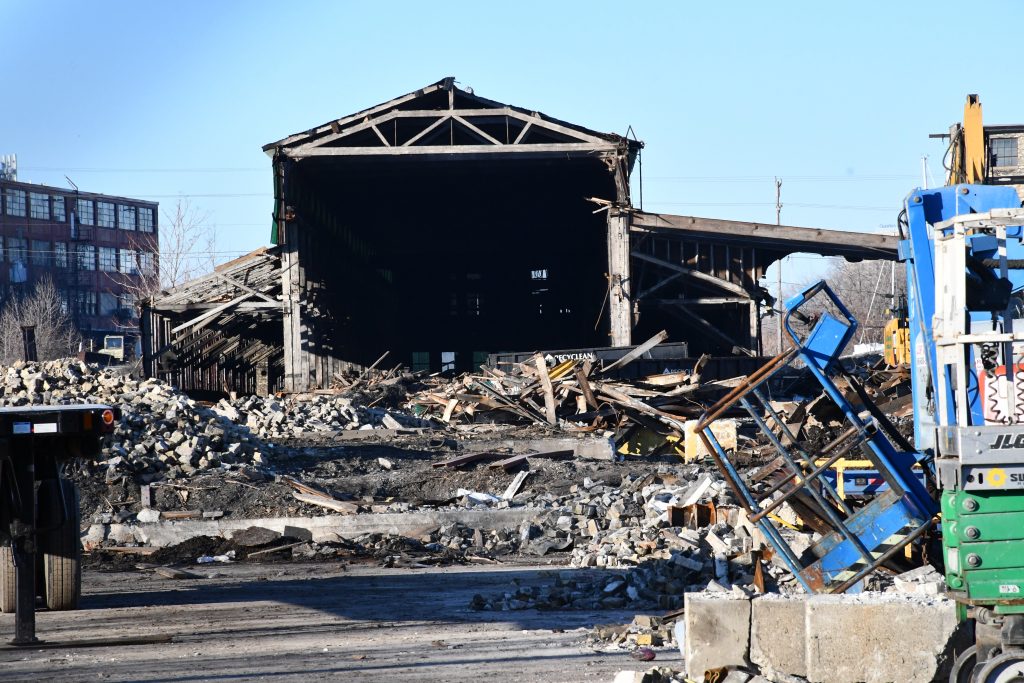
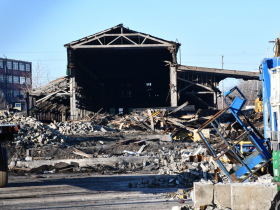
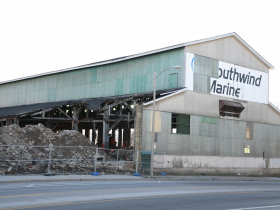
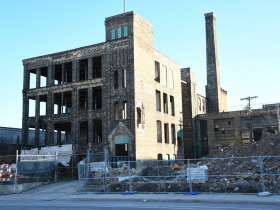
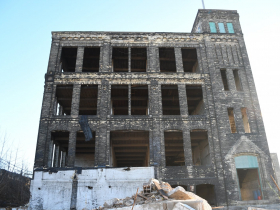
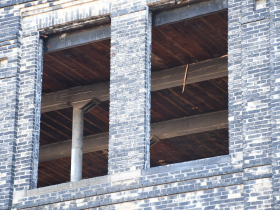
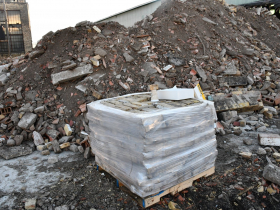
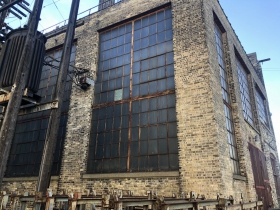
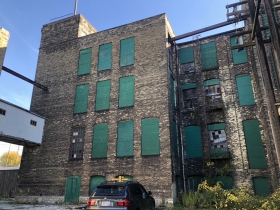
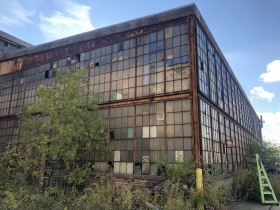
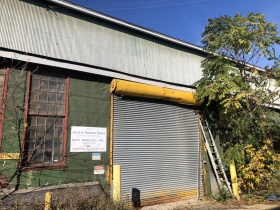
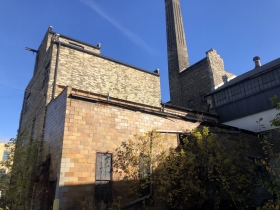
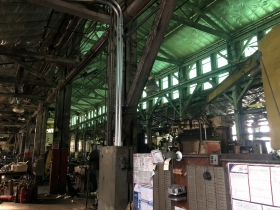
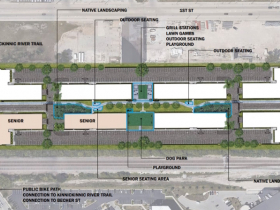
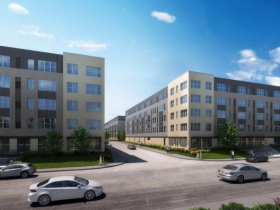
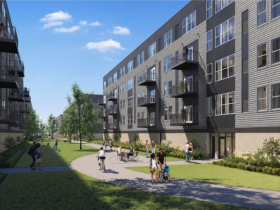




















Two points:
We are losing another factory. I understand that the factory has been closed for years. But, there was a time when something was produced. There were real jobs.
Does low-cost housing mean lower “rent?” Renting doesn’t help build wealth. Someone is making money and it isn’t the renter. What about a situation where the renter can become an owner?
Why not work on finding real jobs and a situation where the poor can buy homes?